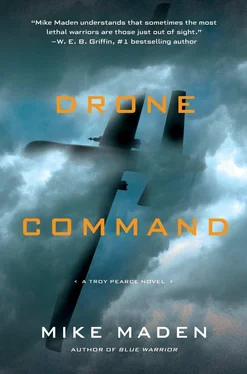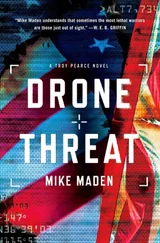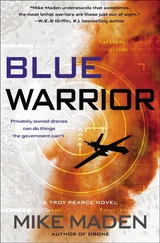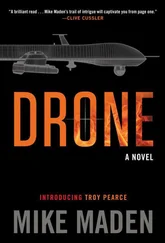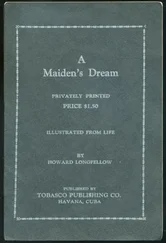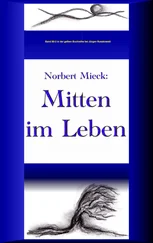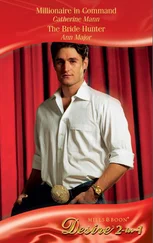The digital clock flashed thirty seconds. A loud alarm bell began blaring like a klaxon, marking the countdown.
“Watch!” Kobayashi shouted, his aged eyes filled with childish delight.
The Japanese lunged at the Korean, a war cry screaming from his mouth, eyes crazed, sword raised high above his head for a killing blow.
The Korean raised his sword to block, but the Japanese checked his swing and pulled back at the last second. He cursed the Korean, called him a coward, his voice booming, amplified by pure adrenaline. The clock ticked off fifteen seconds.
The Korean circled cautiously. The crowd booed and jeered. The Japanese lowered his sword to his side and mocked the Korean’s mother, his manhood, his paternity. The clock ticked five seconds to go.
The Korean shouted a bloodcurdling curse and grabbed his helmet with his left hand. In the second it took him to clear the mask from his face, the Japanese lunged again, sword held in both hands, thrusting straight forward. The sharp tip of the wooden blade plunged into the Korean’s unprotected throat, cutting off his scream. He dropped his katana and instinctively grabbed the blade plunging into his neck. Too late.
The Japanese shouted his kiai , ramming the wooden tip in as deep as he could, legs pumping hard, forcing the Korean backward until the Korean tripped over the first row of seats, scattering the bettors, the Japanese fighter on top of him, throwing his full weight on his sword until the Korean’s neck snapped in two with a crack.
The buzzer blared. Bout over.
The audience screamed with bloodlust, joyous, even the losers.
The Japanese lifted his bloody blade high, spreading his arms wide, face beaming with pride. A shower of gold and silver coins crashed on the floor at his feet.
Kobayashi shook his head in disgust. “No honor in that.”
Tanaka nodded his agreement. “He acts like a filthy American footballer after a goal.”
Kobayashi shook his head. “I fear for our young people. They have lost their way.” He took another drag on his cigarette.
“Then it’s our responsibility to teach them the old ways before it’s too late.”
“Too late? How?”
“I know you’re a learned man and pay attention to the affairs of the world.”
Kobayashi grunted, accepting the compliment. “The Chinese again?”
“Yes.”
Kobayashi thought about that as he watched the Korean’s corpse being ceremoniously carried away. Several towel boys slid onto the floor and mopped up the blood and sweat.
“Will we be at war soon?”
Tanaka nodded. “Yes. It’s almost unavoidable.”
A voluptuous African woman with short-cropped, blazing red hair approached carrying a silver platter of freshly sliced sashimi. She described the extremely costly tray items in faultless Japanese.
“Almost unavoidable?” Kobayashi pointed at three different plates of sashimi. The girl set them down in front of him and flashed an offering smile at Tanaka. He waived her away and she left with a small bow.
“War can be avoided, Oyabun . But it will not be easy.”
Kobayashi lifted a piece of fatty otoro tuna with his chopsticks and dropped it into his mouth. The sweet belly meat practically melted on his tongue. He pointed to the plate, indicating Tanaka should take some. He did.
“What about Ito?” Kobayashi asked.
“He’s an American lackey, a monkey on a leash. The fool will stumble into war and drag us all the way to hell. Unless you help me.”
The old yakuza nodded. Yakuza were famously patriotic and ultranationalistic, a common trait among organized-crime elements the world over. Even the Chinese Communists were known to have employed the lawless Triads in patriotic service to the world revolution.
“What must be done?”
Tanaka laid out the details of his plan as the next combatants entered the ring. Three men in green strode in from one side of the ring like a street gang, rough and unmannered. Their dark bare torsos were shredded with thick cords of sinewy muscle and slathered in bright yakuza ink, but heavy grilled kendo masks hid their faces. They took up positions on the far side of the circle, flashing their wooden swords back and forth as if flicking at flies, impatient for battle. Tanaka guessed the yakuza fighters were mixed-race Okinawans.
“Sounds risky. What’s in it for you?”
“Nothing, Oyabun .”
“Not very smart. So what’s in it for me?”
“Even less. Perhaps worse.” They both knew that Kobayashi was putting his entire organization at risk by throwing in with Tanaka’s plan.
“So what would that make me?”
“A patriot.”
Kobayashi nodded his head, calculating. Finally, he snapped his head curtly. Hai!
A lone fighter entered from the opposite side of the room, each step an act of ceremonial grace. He wore a traditional kendo uniform — a keikogi with three-quarter-length sleeves over his torso, and the pleated skirt known as a hakama. Both were dyed in traditional indigo blue. A white and red “sun circle” Japanese national flag was sewn on the back. His mask was tucked under one muscled arm. His face was stalwart and handsome like one of the samurai soap-opera stars seen constantly on Japanese television, but his thick black hair was styled in a crew cut, the bristles stiff and dense. He pulled on his mask with ritual precision and carefully adjusted the wooden tanto tucked in his belt.
“This will be something special,” Kobayashi said. He nodded toward the lone Japanese fighter. “That man has never been defeated.”
Tanaka was a martial artist himself. He saw clearly that the disciplined Japanese was the superior fighter and certain to win in spite of being outnumbered by the Okinawan rabble.
The referee approached, dressed in the traditional long-skirted garb of a kendo judge. He was short but powerfully built, and his pencil mustache was tinged with gray. He pointed at the clock with a folded fan until it flashed five minutes. He raised his arm. The combatants bowed to one another. The referee slashed the air with his hand and the bout began. The audience shouted.
The three yakuza fighters backed up and spread out equidistant as the Japanese advanced into the center. The yakuza fighters swiftly spread out even farther, forming a three-pointed perimeter around the Japanese swordsman.
The Japanese stood rock still in the center of the arena, dropping his head to his chest, resting his katana on the top of his helmet mask almost as if he were praying.
The yakuza fighter directly in front of him glanced up at the clock. Twenty seconds had already elapsed. He shouted to his compatriots and the three men inched forward, their feet never leaving the wooden floor, trying not to reveal their positions, trying to move in sync so as to arrive at the same destination at the same time.
Cautiously, deliberately, they each inched closer and closer. The audience was dead silent. Not even the tink of glasses or silverware. The closer the yakuza fighters got, the farther forward everyone in the audience leaned.
When the yakuza fighters got within slightly more than a sword’s length distance, they all shouted as one and charged, katana slashing wildly. The Japanese twisted, parried, turned, spun, and swung faster than anything Tanaka had ever seen. Sword strikes clacked like a string of firecrackers. The yakuza fighters fell back. The Japanese stood firm.
The audience applauded.
To his practiced eye, it seemed to Tanaka that all the yakuza strikes were blocked. If any landed, the Japanese hadn’t shown it. No signs of injury. But Tanaka noticed the bleeding knuckles on the hand of one of the yakuza fighters, and another one was shaking out an obviously injured wrist.
Читать дальше
